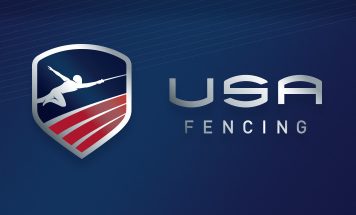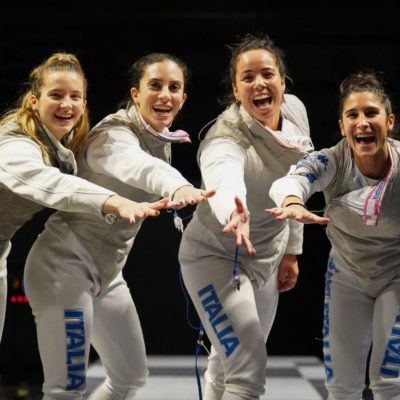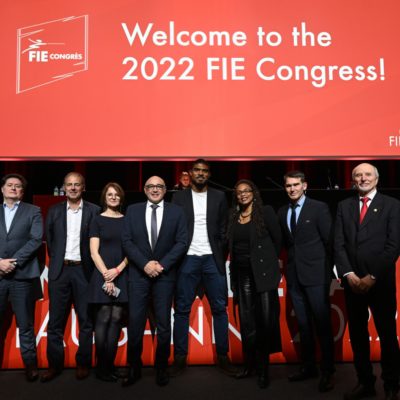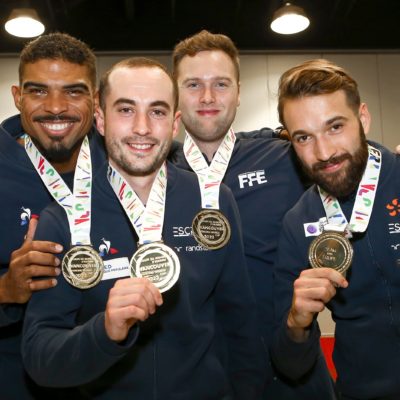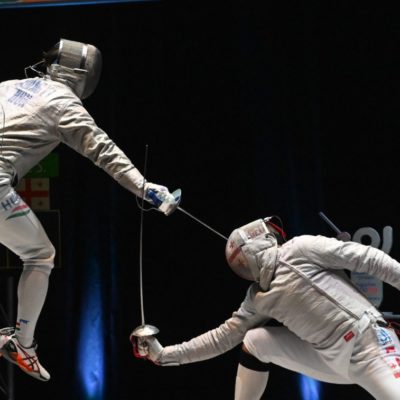Now that the 2022 Season is in full swing, Fencing.net wanted to round up the recent news and policy changes from USA Fencing into a single place. A flurry of them landed in November, largely from the annual Board of Directors summit. USA Fencing’s coverage does a fine job of the straight facts, and we’ll offer some slight commentary and context to each one below:
USA Fencing Ends Vaccine Requirements for National Tournaments
The USA Fencing article delves into justifications on why this is now the policy moving forward. The overall community reaction is one of disappointment, both at the announcement and the situation.
USA Fencing Indicates Intent to Extend FIE Restrictions on Russian and Belarusian Athletes
This announcement twofold – part announcement on intent to vote in a particular way in the annual FIE Congress, and part internal policy announcement. This congress just concluded, and these restrictions were extended further, with USA Fencing voting in the direction they indicated in the article. In addition to this, USA Fencing has imposed an effective ban on all Russian and Belarusian athletes that have held an FIE license for one of these two countries in the past 3 years. This is inclusive of competing, coaching and refereeing; and is a more restrictive policy than the one implemented earlier in the year. The US does have a good number of Russian and Belarusian coaches and competitors inside its borders right now for a variety of reasons – many of which have been here for quite a long time and will not be impacted by this policy. It is currently unclear and undisclosed the number of individuals this policy change will impact. The largest impacts moving forward will likely be on the NCAA athletes, as many colleges have previously recruited from these countries, as well as the hiring of international coaches and referees.
USA Fencing To Prefer States With Inclusive Laws as Host Cities
As a way to live out their stated organizational goals, USA Fencing is now de-prioritizing host cities that are governed by laws that are not in alignment with those stated organizational goals. This is a policy that will take some time to shake out, as many of these hosting contracts are made well in advance. Consequently, this also means there’s some space for these laws to change or be otherwise overruled. It’s likely that this policy will have some budgetary impact, as many of the least expensive states to host events tend to also be the ones that will be covered by this policy. In a similar vein, this might also result in some unusual geographic diversity in hosting, as those same less expensive states are now off the table as hosts, which would be a potentially very pleasing development for some members who have long requested national events to be more geographically equitable.
USA Fencing Implements Transgender and Nonbinary Athlete Policy
This policy is detailed and interested parties should read the text of this one carefully. The general summary is that athletes will be allowed to compete under the gender they have indicated at the start of a season, and if applicable, athletes must adhere to transgender athlete guidelines. As noted in the article, the goal here is for progress, not perfection. The implication of the article is that further changes will likely come over time, and that this is an initial set of changes to address at least some issues identified by membership and leadership of USA Fencing.
USA Fencing Board Adds Ivan Lee and Selina Kaing as Vice-Chair
Ivan Lee and Selina Kaing joined the Board of Directors as Vice-Chairs in volunteer advisory roles to close up existing experience gaps. Vice-Chairs are non-Director positions. Both are deeply experienced in their respective areas of expertise, and are great additions to the USA Fencing leadership team.


